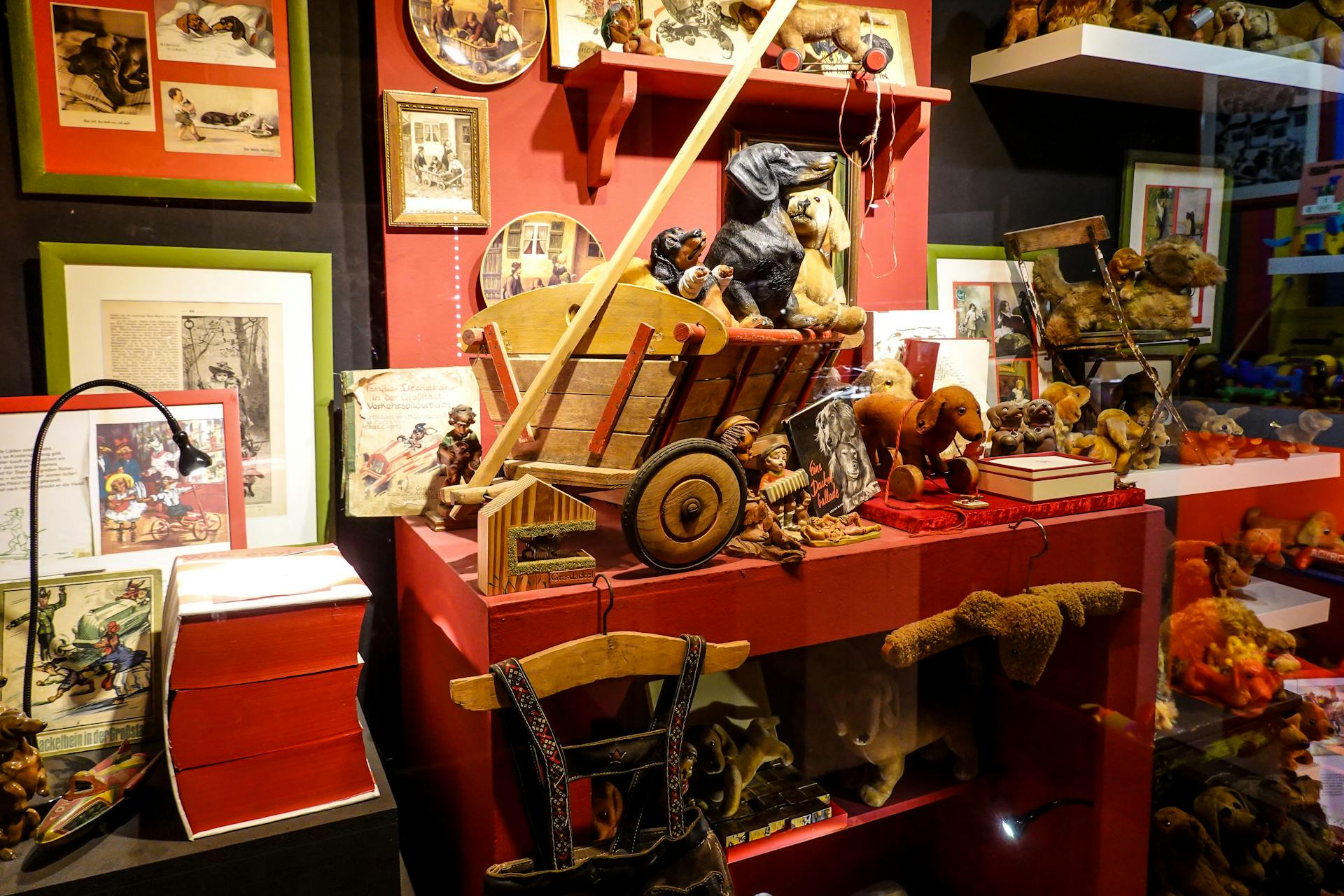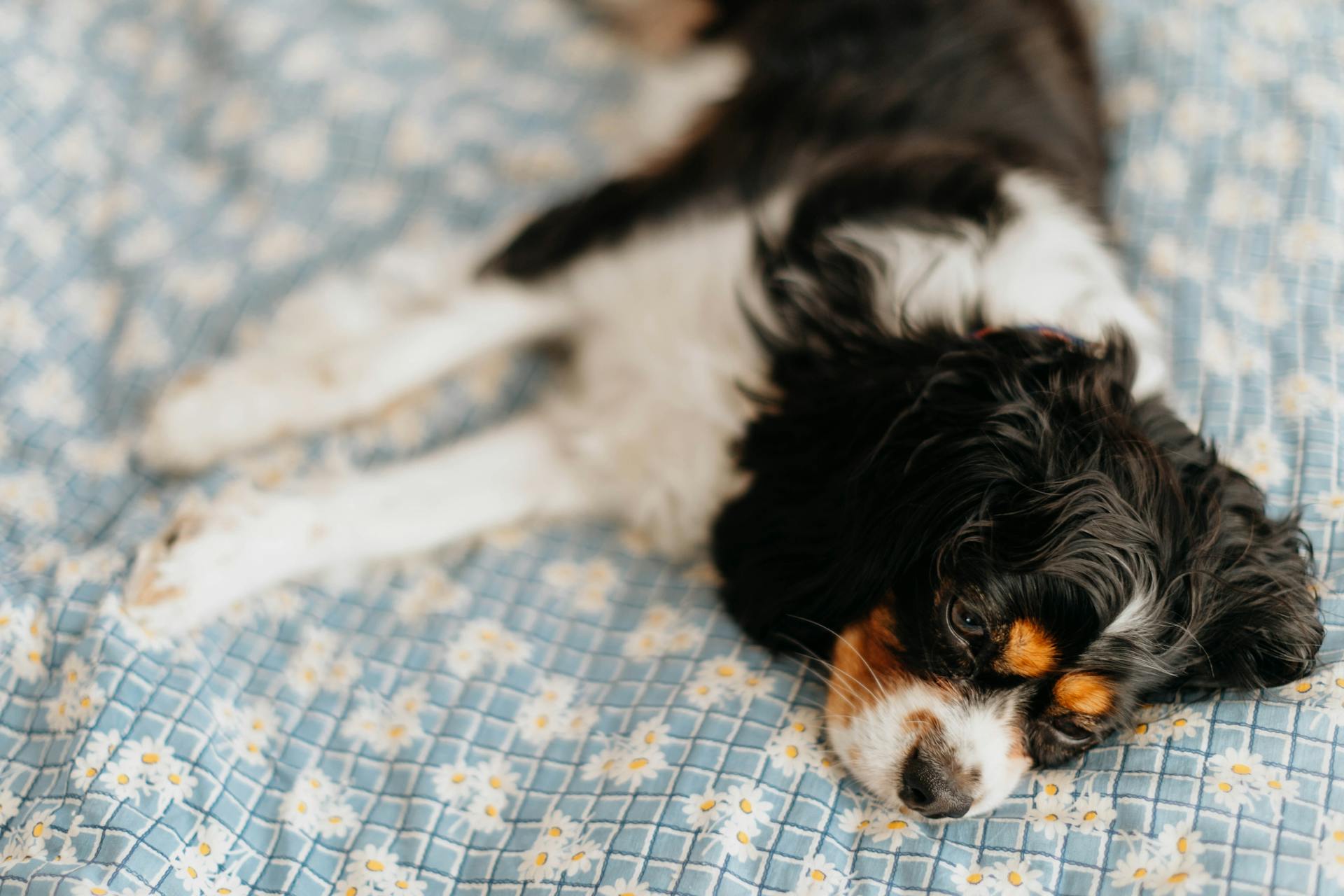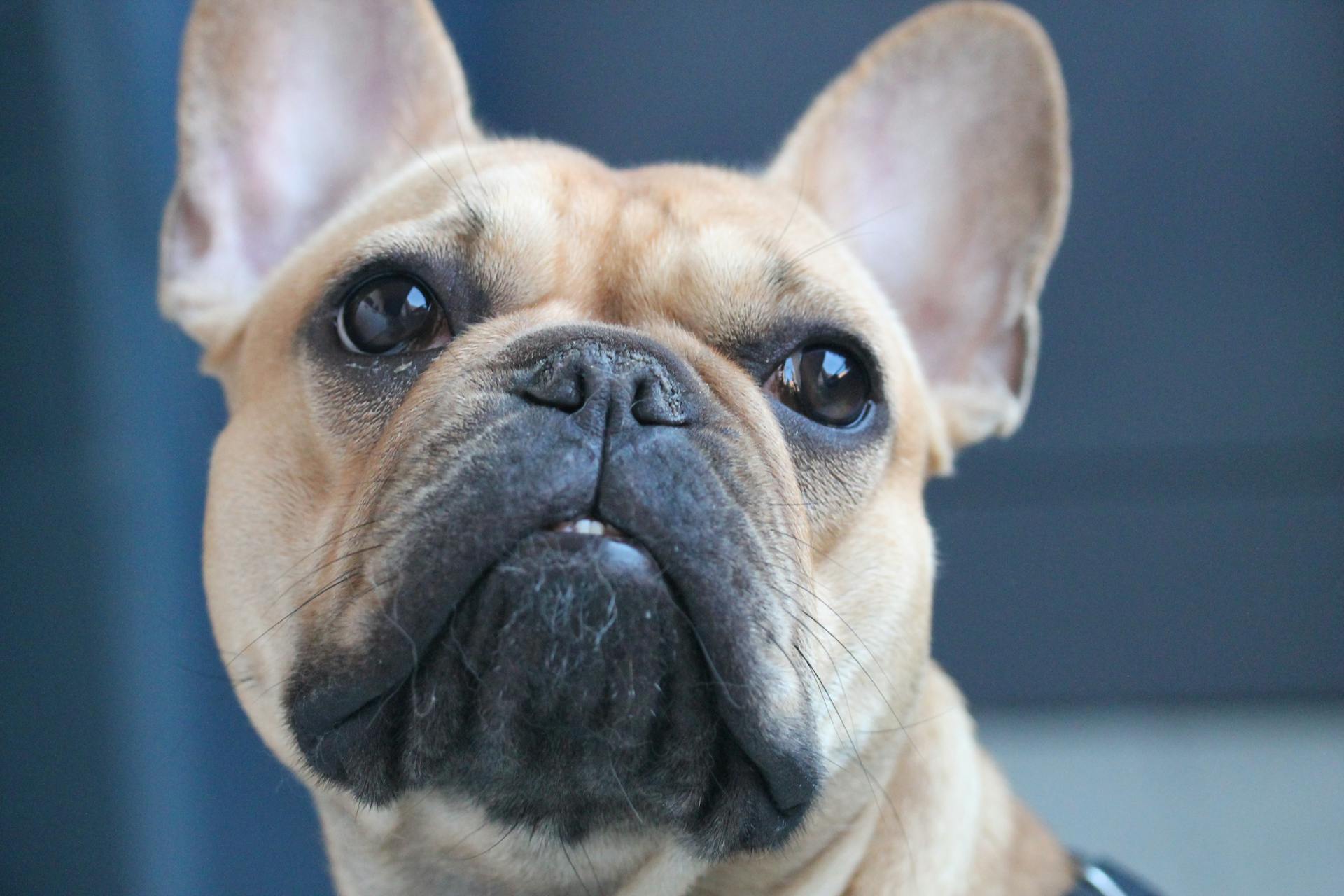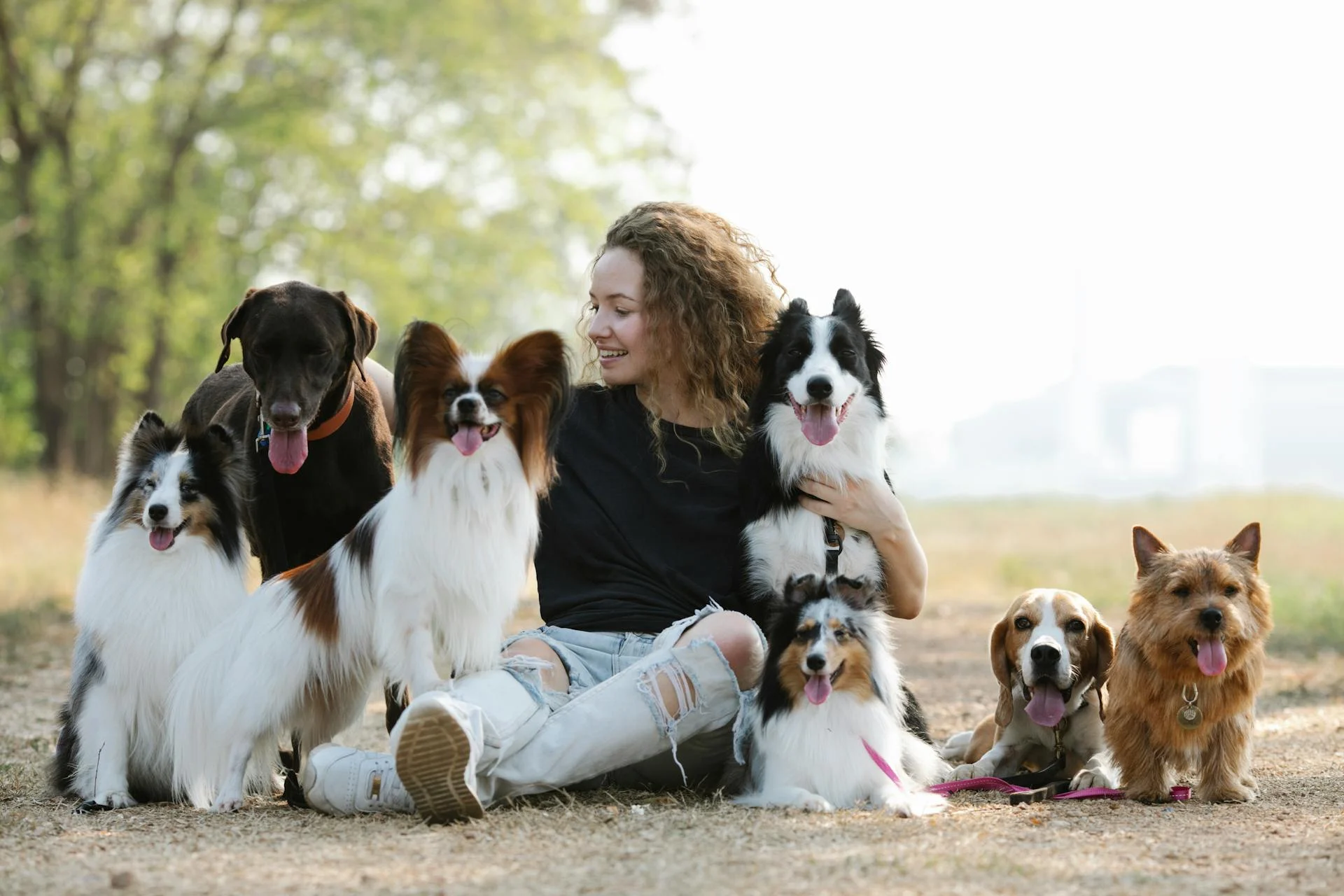
If you're considering bringing a Norwich Terrier into your family, it's essential to weigh the pros and cons. They're a lively and affectionate breed, but they do require regular grooming.
Norwich Terriers are relatively small in size, weighing between 8-12 pounds and standing about 10 inches tall. They're a great fit for city living, as they don't require a lot of space to run around.
One of the biggest advantages of owning a Norwich Terrier is their low-shedding coat, which makes them a great choice for people with allergies. However, this also means they need to be brushed regularly to prevent matting.
Their energetic nature means they need plenty of exercise to stay happy and healthy, but they're not high-strung and can adapt to apartment living with regular walks and playtime.
Breed Characteristics
The Norwich Terrier breed is a unique and lovable companion. They are a small, stocky dog with a broad skull and medium-sized, perky ears. They have a strong muzzle, dark oval eyes, and a black nose. Their fur is double-coated, almost weatherproof, and comes in several different colors including black and tan, grizzle, wheaten, tan, and red.
Additional reading: Blue Tan Border Terrier
One of the key characteristics of the Norwich Terrier is their love of human companionship. They thrive on love and attention from their owners and will pay them back with affection and loyalty. They are also known to be fearless and have a bit of sass, making them a great option for all types of homes.
In terms of grooming, Norwich Terriers don't require a lot of maintenance. They can get by on being brushed once a week, and they don't need to be bathed unless they get especially dirty. However, they do need to be stripped, which is a process of pulling out entire hairs, to keep their coat healthy.
Here are some key characteristics of the Norwich Terrier breed:
Norwich Terriers are also known for their high prey drive and tendency to bark and dig. They are happiest when they have a job to do, such as attending obedience class or participating in dog sports. They are courageous and loyal, making them excellent watchdogs, but they should never be aggressive.
Health and Care
The Norwich Terrier is generally a healthy breed, but like all breeds, they're prone to certain health issues. Tracheal collapse, elongated soft palate, and epilepsy are some of the conditions that can affect this breed.
To ensure your Norwich Terrier stays healthy, it's essential to find a good breeder who provides health clearances for both parents. These clearances prove that a dog has been tested for and cleared of conditions like hip dysplasia, elbow dysplasia, hypothyroidism, and von Willebrand's disease.
A daily exercise routine is also crucial for maintaining your Norwich Terrier's physical and mental health. They require at least two vigorous 10- to 15-minute walks per day or playtime in a fenced area. A balanced diet with high-quality commercially or home-prepared dog food, along with regular dental care, will also help keep your Norwich Terrier in top shape.
Here are some common health issues that can affect Norwich Terriers:
- Tracheal collapse
- Elongated soft palate
- Epilepsy
- Hip dysplasia
- Elbow dysplasia
- Hypothyroidism
- Von Willebrand's disease
- Patellar luxation
- Cataracts
- Scottie cramp
- Cardiomyopathy
- Atopic dermatitis
Health
The Norwich Terrier is generally a healthy breed, but like any other breed, they're prone to certain health conditions. One of the most common issues is tracheal collapse, which can cause a distinctive "goose honk" cough, fainting, and difficulty exercising.
For your interest: American Bulldog Puppies Johnson Breed
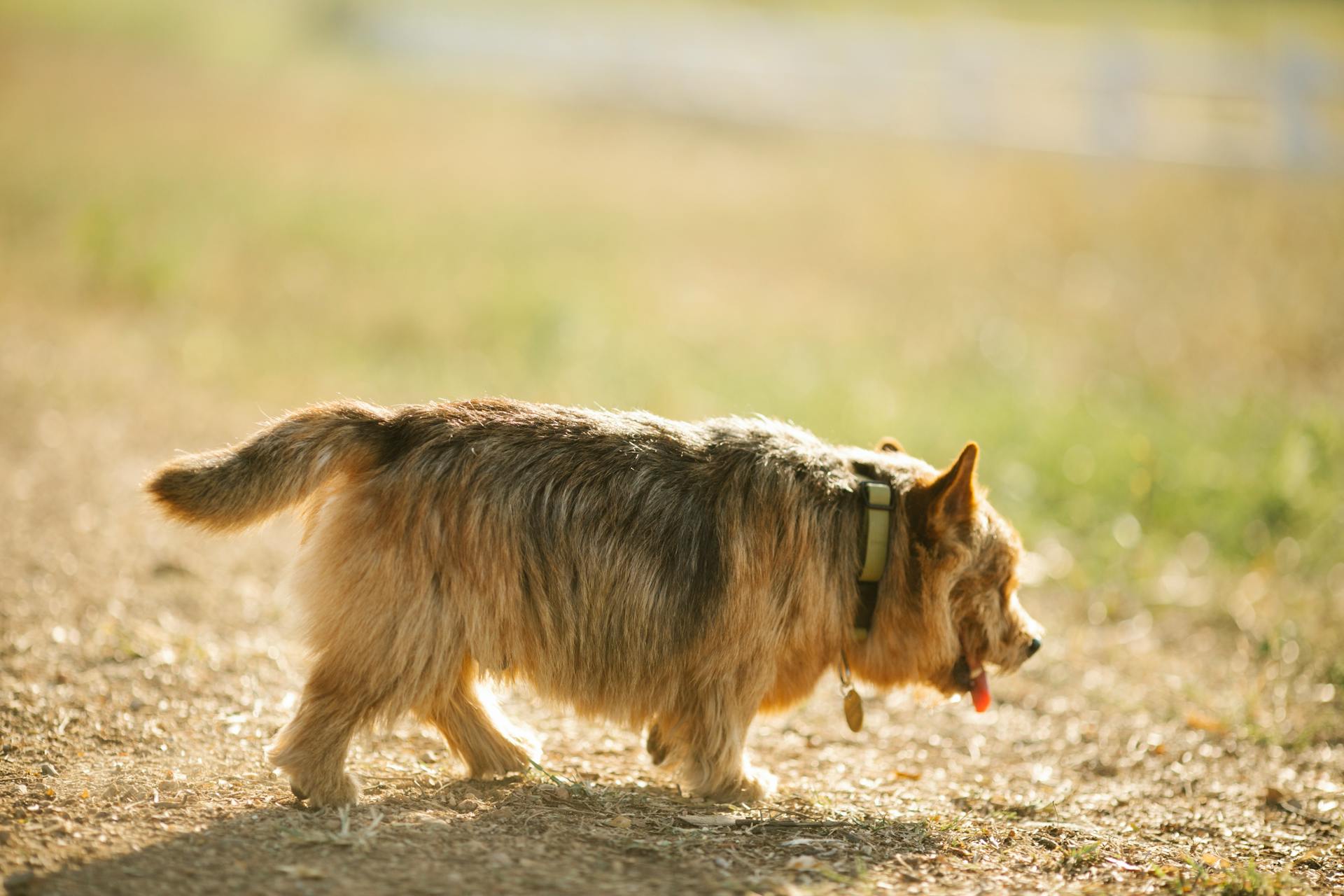
If your Norwich Terrier is diagnosed with tracheal collapse, your vet may recommend treating it medically with antibiotics, steroids, and cough suppressants. In some cases, surgery may be necessary.
Elongated soft palate is another issue that can obstruct the airway and cause breathing difficulties. Fortunately, it's relatively easy to treat with surgery to remove the excess palate.
Epilepsy is a hereditary disorder that can cause seizures in Norwich Terriers. While it can't be cured, it can be managed with medication, allowing your dog to live a full and healthy life.
To ensure you're getting a healthy puppy, look for a reputable breeder who has performed health clearances on the parents. These clearances show that the dog has been tested for and cleared of conditions such as hip dysplasia, elbow dysplasia, hypothyroidism, and von Willebrand's disease.
Here are some health clearances to look for:
- Orthopedic Foundation for Animals (OFA) for hip dysplasia (with a score of fair or better), elbow dysplasia, hypothyroidism, and von Willebrand's disease
- Auburn University for thrombopathia
- Canine Eye Registry Foundation (CERF) certifying that eyes are normal
Remember to confirm health clearances by checking the OFA website (offa.org).
Care

The Norwich Terrier is an intelligent working dog that thrives on having a job to do. He's happiest when he's engaged in some form of activity or training.
Training can be fairly easy with this breed as long as you provide clear and consistent rules and training. To keep things interesting, try making your training sessions varied rather than repetitive.
Housetraining can be a challenge, so be prepared to invest time and patience into this process. Using a crate can be a kind and effective way to prevent accidents in the home.
A crate is also a great place for your Norwich Terrier to retreat to for a nap. Just remember not to keep him locked up in there all day long, as he's a people dog that needs interaction and attention.
Daily exercise is a must for Norwich Terriers, who have an ample supply of energy. A couple of vigorous 10- or 15-minute walks per day or playtime in a fenced area should meet their exercise needs.
It's crucial to keep your Norwich Terrier on a lead when he's not in a fenced area, as his strong desire to chase can put him in harm's way.
Worth a look: Crate Training Pros and Cons
Diet

When it comes to feeding your Norwich Terrier, high-quality dog food is a must. This can be either commercially prepared or home-prepared under veterinary supervision.
Fresh, clean water should always be available for your Norwich Terrier. This is essential for their overall health.
Treats should be given in moderation to avoid weight gain or obesity-related issues.
Grooming and Maintenance
The Norwich Terrier's coat is a key part of their charm, but it does require regular grooming to keep it looking its best.
A hard, wiry topcoat and soft, downy undercoat make up the Norwich's unique coat, which comes in a range of colors including red, grizzle, wheaten, and black and tan.
Brushing your Norwich weekly will help remove dead hair and keep their coat clean, but be aware that they will shed, even if it's not as much as some other breeds.
Regular brushing will also help prevent matting and tangling, which can be painful for your dog.
Intriguing read: Long Coat Chesapeake Bay Retriever
Small dark eyes twinkle beneath slight eyebrows, but be sure to check for any signs of redness or discharge when grooming your Norwich's eyes.
Their ears should smell good and not have too much wax or gunk inside, and their nails should be trimmed regularly to prevent scratching.
By starting to groom your Norwich when they're a puppy, you can help them get used to being handled and make the experience a positive one filled with praise and rewards.
This will also make future veterinary exams and handling easier for both you and your dog.
Stripping their coat twice a year will help maintain its characteristic hard texture, but be aware that clipping or scissoring can soften the coat and cause the natural color to fade.
A different take: Shiba Inu Coat
Living with a Norwich Terrier
They generally love everyone and will do well in households with multiple pets and children.
Norwich Terriers need early socialization to grow up to be well-rounded dogs. Enrolling them in a puppy kindergarten class is a great start.
They are active and love playing with balls and toys or just playing a good game with the people they love. Their sensitive intelligence and alert nature ensure that they'll bark an alarm if they spot anything or anyone suspicious near their home.
You should teach children how to approach and touch dogs, and always supervise any interactions between dogs and young children to prevent any biting or ear or tail pulling on the part of either party.
Norwich Terriers are usually eager to please and respond well to training.
Children and Pets
Living with a Norwich Terrier and children requires some thought and planning. Norwich Terriers are known for their love of everyone, and this includes children.
They do much better in homes with children if they are raised with them. This is because they are naturally affectionate and playful, making them a great match for families.
However, it's essential to teach children how to approach and touch dogs, and always supervise any interactions between dogs and young children. This will prevent any biting or ear or tail pulling on the part of either party.
Norwich Terriers also do very well with other dogs and tend to have no issues with other canine pets. They can adjust to living with cats but they need to be properly socialized to them to do so.
Early socialization is key to raising a well-rounded Norwich Terrier, and this includes exposure to many different people, sights, sounds, and experiences. Enrolling him in a puppy kindergarten class is a great start to this process.
As a responsible pet owner, it's crucial to supervise any interactions between dogs and young children to prevent any potential problems. This will help create a harmonious household where everyone gets along.
Training
Norwich Terriers are usually eager to please and respond well to training.
Because of their spirited nature, they thrive on structure and clear communication. This makes them successful in performance and companion events like barn hunt and agility.
These dogs are naturally intelligent and love to learn, which makes training a fun and rewarding experience for both you and your Norwich Terrier.
Right Breed for You?
Living with a Norwich Terrier: Right Breed for You?
If you're considering bringing a Norwich Terrier into your family, it's essential to think about whether this breed is right for you. The Norwich Terrier Review suggests that you consider dog breed traits that suit your lifestyle and family.
A Norwich Terrier is a small, energetic dog that requires regular exercise and attention. They need daily walks and playtime to keep them happy and healthy.
Norwich Terriers are generally good with children, but they can be wary of strangers. Socialization is key to helping them feel comfortable around new people.
If you live in a small apartment or have limited yard space, a Norwich Terrier might not be the best fit. They need room to run around and play.
Here are some key traits to consider when deciding if a Norwich Terrier is right for you:
Ultimately, the decision to bring a Norwich Terrier into your family depends on your ability to provide the attention and care they need.
Featured Images: pexels.com
